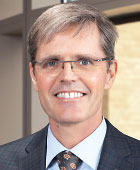Why We Love Psychiatry
Abstract
Take a moment and imagine having a job with these characteristics:
Centers around forming the most positive, trusting, and healing relationships possible with other human beings.
Thoroughly trains you to create such relationships, then gives you time on a daily basis to actually do so.
Offers you unlimited intellectual fascination as you study the most complex object in the universe, with new discoveries announced on a weekly basis.
Challenges you to apply the results of such knowledge to the lived experience of your own and other people’s lives.
Pays you for helping people in the most deep and meaningful way possible.
Welcomes you to do your job everywhere in the country.
Pays you so well that you will never have to worry about supporting yourself and those you love.
Those of us who are psychiatrists do not have to imagine the above scenario. We have it, and we live it every day of our professional lives. We who are psychiatrists have the job that most people dream about, one that provides security, connection, status, intellectual fascination, and deep meaning. Whether we know it not, we psychiatrists are living the dream.
Of course, no one’s work is all rainbows and unicorns. Every job has stress, and ours has a level of responsibility that would scare most nonphysicians. Almost all of us deal with smothering bureaucracy, intense work demands, patients at risk of suicide or violence, vicarious trauma, and still-lingering stigma against mental illness.
At the same time, our world situation is hardly peaches and cream either. Climate change looms, the pandemic’s effects go on, international conflict rises, and the economy seems fragile. It is understandable that so many of us feel weighed down by the accumulation of our personal and corporate problems. Being psychiatrists does not make us or our families immune from the normal slings and arrows of life, or from mental illness, for that matter.
And just as we share the problems of being human with everyone alive today, we also share the problems of being a professional with all other professionals today. In other words, the majority of the problems we deal with at work are not unique to psychiatry. Almost all professionals have to deal with a high level of responsibility and stress. Almost all have to deal with crushing paperwork. Almost all have to deal with long hours, demanding and impossible clients, and intimidating problems that cannot be completely solved. While most of the downsides of what we do are common to all, the upsides of what we do are unique, and they are extraordinary.
In most of life, people have to choose between money and status on one hand and what they would find most meaningful and fulfilling on the other. People who want to be teachers, journalists, social service workers, artists, or musicians feel a deep calling to their work. But they know that they will probably have to do their work with inadequate resources and that they will spend the majority of their careers scraping by financially. Teachers are underpaid and have to spend their own money decorating their classrooms. Artists and musicians have to spend as much time on self-promotion as art, and most will never be able to quit their day jobs. A few may find fame and fortune, but the vast majority will not, and they will have to pay a heavy cost for pursuing their true calling.
This is not the case for those of us who practice psychiatry. We can do what we love to do; we can do the work that means the most to us; we can make our contribution toward a better world every day that we practice. We have complete confidence that we can support ourselves and our families in fine financial style. We never have to worry that we cannot find work in our field—there is a constant need for psychiatrists in every city in this country and the world. We never have to worry that our skills will go unvalued, since we are recognized as physicians and universally recognized specialists in a time of mental health crisis.
If you are suited to the career of psychiatry, you are colossally lucky to have found it. And you are profoundly fortunate to live in a time when our career offers such an overwhelming bounty of goods. If you consider yourself a spiritual person, then count your blessings. If not, then savor every moment of what life has given you because being a psychiatrist is better than winning the lottery. Literally. ■




